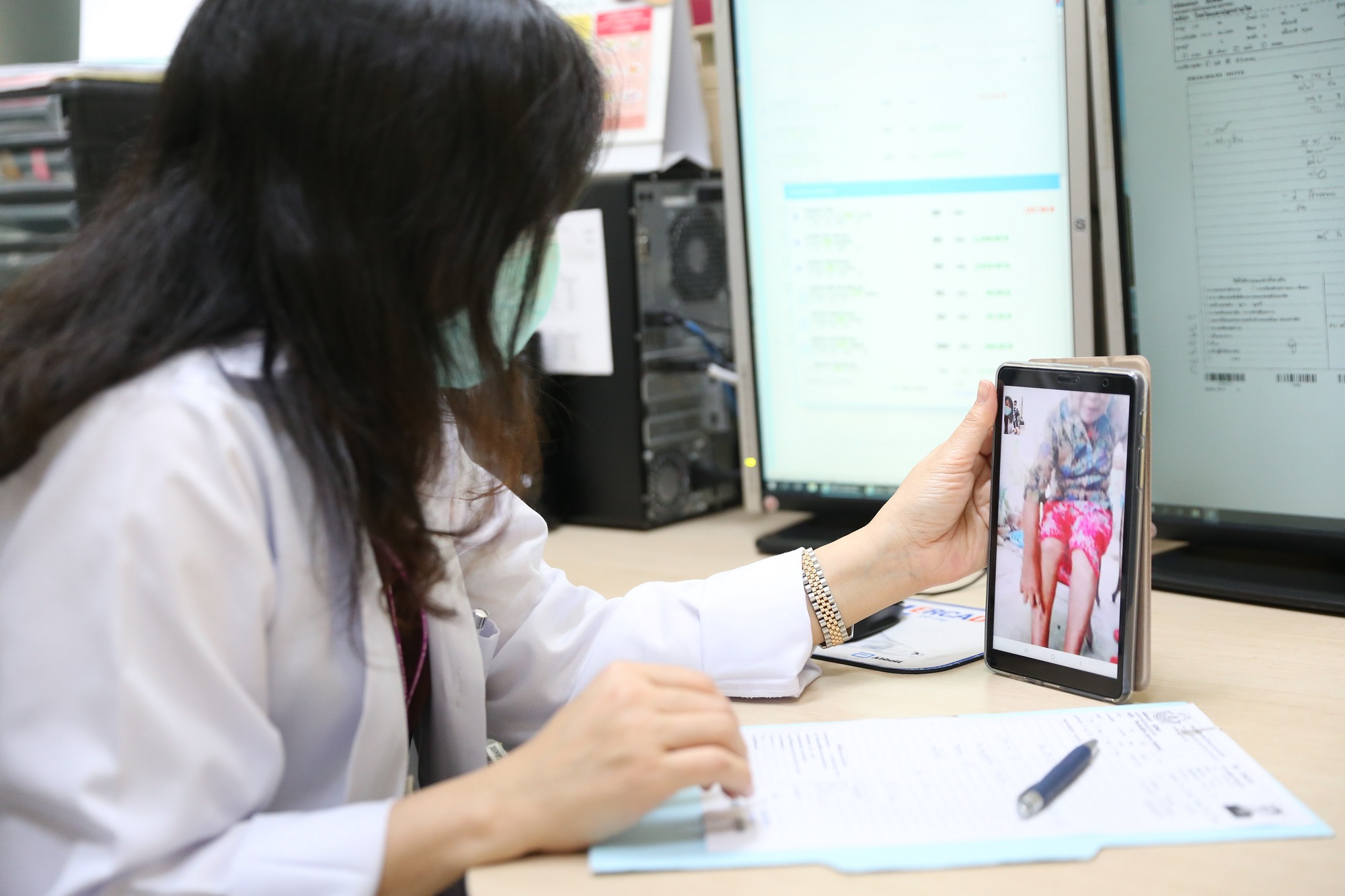
- Home
- DescriptionNews
Remote care to be piloted in Bangkok

Remote care to be piloted in Bangkok
National Health Security Office (NHSO) will partner with Bangkok health and digital platform providers to pilot a remote care initiative covering 42 diseases and symptoms.
The adoption of telemedicine in Thailand has accelerated since the beginning of the COVID-19 pandemic and is widespread after the health crisis receded.
Many health units, from state and private hospitals to community clinics, have used telemedicine for many purposes — including increasing patients’ reach out, reducing hospital crowding, and saving operational costs.
As telemedicine adoption is growing fast, the NHSO has embraced it as an opportunity to improve the health system and increase people’s access to affordable care.
In 2020, the NHSO began including telemedicine in the health benefits of the Universal Coverage Scheme (UCS), the tax-funded healthcare scheme that insures more than 47 million people.
The move firstly aimed to provide effective care and monitoring to COVID-19 patients who were isolated at home and health facilities, while protecting health staff from exposure to the risk of coronavirus infection.
Soon remote care was extended to patients living with chronic diseases and demanding regular medical consultation amidst resource constraints during the pandemic.
These patient groups included those dealing with cancer, heart disease, diabetes, and hypertension.
As COVID-19 became endemic now, the focus of telemedicine has shifted to improving healthcare access rather than emergency response.
Telemedicine piloted in Bangkok
Bangkok, despite its rapid urbanization and development, is Thailand’s most challenging area for expanding healthcare access.
The rate of healthcare access in the capital, especially primary health services, is lower than in other parts of the country.
The NHSO’s data shows that average outpatient visits in Bangkok are 1.7 times per person in a year, lower than the national rate of 3.4 times.
This challenge links to the aspect of Bangkok’s healthcare system that depends on the private sector.
Many private hospitals and clinics are not integrated into the government’s health system, meaning patients who visit these health units must pay medical fees from their pockets.
Ministry of Public Health’s record shows that around 2,000 private clinics are located in Bangkok, while only 300 state-run primary care units are available to serve nearly 10 million residents and migrants.
Despite this gap, Bangkok has an opportunity from its widespread internet connections and availability of digital platform providers — allowing telemedicine to fill the gap.
The NHSO is aware of this gap and opportunity. On October 1, it launched the piloted telemedicine program in Bangkok to provide remote care for patients with 42 diseases and symptoms often reported in hospitals’ outpatient wards.
Those include red eyes, osteoarthritis, food poisoning, stomachache, sore throat, back pain, flu, and sinus.
.jpg)
Partnership with health and platform providers
Partnership with health and digital platform providers are the key to achieving the piloted telemedicine initiative, said the NHSO secretary-general, Dr Jadej Thammatatacharee.
The NHSO is recruiting health providers in Bangkok to take part in the initiative and hopes it can fully be implemented within 2023.
Health providers must obtain licenses from the Ministry of Public Health and have the capacity to integrate telemedicine into their health services. They must also be able to follow the Ministry of Public Health’s guidelines, which set criteria for ensuring the standard of remote care.
The criteria include deploying patients’ identity verification system and providing effective medical consultation sessions which usually span from 10 to 15 minutes per case.
Health providers must partner with local pharmacies that can deliver medicines to patients within 24 hours after the sessions.
Dr Jadej said that health providers should be able to deploy AMED Telehealth, a telemedicine software certified by the National Science and Technology Development Agency.
The software allows health providers to record health service data that can be used to e-claim medical fees from the NHSO.
In addition, the NHSO is partnering with digital health platform providers — Good Doctor Technology, Clicknic, Mordee, and Saluber MD developed by private clinics.
These platforms have been widely used by patients under these clinics’ care. They have the potential to be improved and expand the users in near future.
The NHSO is also discussing with Bangkok Metropolitical Administration (BMA) about implementing mobile clinics, where people can request online medical consultation when they need it.
One of the possible solutions is to make mobile clinic vehicles available and accessible, perhaps in public spaces and parking lots of petrol stations.
“Our effort to expand the use of telemedicine in Bangkok will benefit patients the most. They can access primary care without paying from their pocket,” said Dr Jadej.
“One of our goals is to prevent people from visiting hospitals, of which resources should be reserved for critical and intermediate cases.
On the other hand, access to medical consultation can also encourage people to maintain good health, which will reduce resource constraints in the health system.”
////////////

